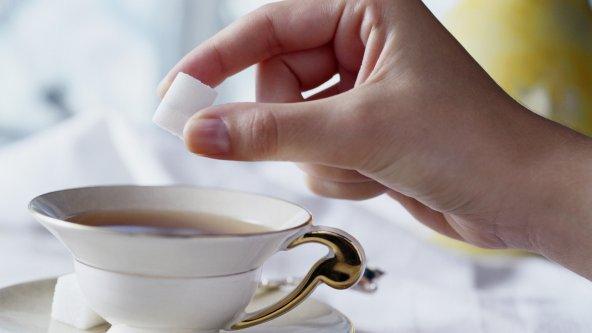NHS England 'to impose 20% sugar tax' in hospital cafes
- Published
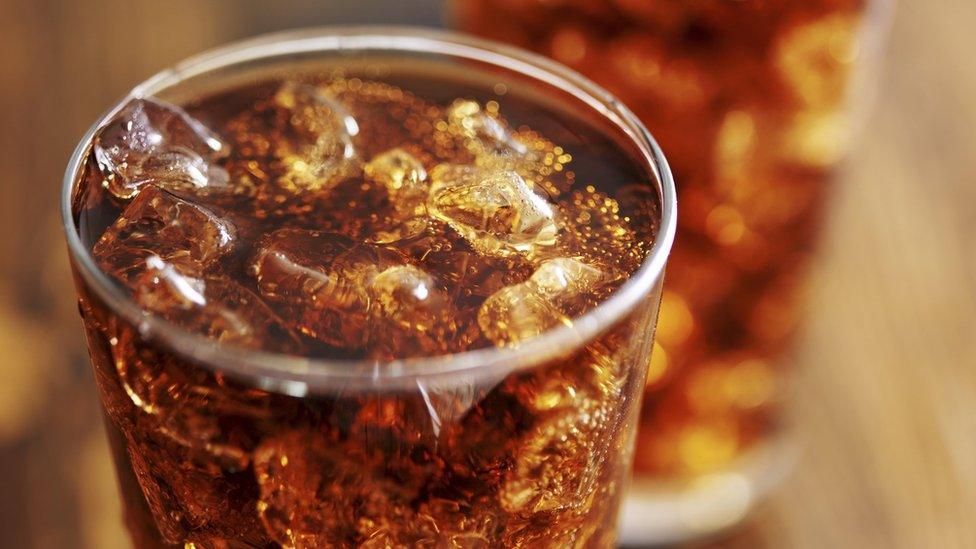
The NHS is to impose its own "sugar tax" in hospitals and health centres in England to help tackle the growing problem of obesity, its head has said.
Chief executive Simon Stevens told the Guardian newspaper, external he was proposing a 20% tax on all sugary drinks and foods in NHS cafes to be introduced by 2020.
He said the NHS's 1.3 million staff had a "responsibility" to lead by example, and urged MPs to take similar action.
David Cameron has said he would not rule out a national sugar tax.
How much sugar is hiding in your food?
Analysis: Can we trust the sugar industry?
It is expected the NHS levy, which would initially only apply to sugary drinks, could raise £20m-£40m a year, Mr Stevens said.
It is hoped the tax would discourage staff, patients and visitors from buying sugary items, while the money raised would be used to improve the health of the NHS's large workforce, he said.
It would be the first public body in Britain to impose a sugar tax.
The Welsh government and the Northern Ireland executive said there were no plans for a similar measure in their respective NHS facilities.
'National well-being'
Mr Stevens said: "Because of the role that the NHS occupies in national life, all of us working in the NHS have a responsibility not just to support those who look after patients, but also to draw attention to and make the case for some of the wider changes that will actually improve the health of this country.
"It's not just the well-being of people in this country and our children. But it's also the sustainability of the NHS itself," he added.
Bosses would consult on introducing the tax, which would be gradually enforced as catering and hospital shop contracts come up for renewal over the next three to five years.

The NHS levy would be linked to the government's forthcoming national childhood obesity strategy.
The campaign group, Action on Sugar, welcomed the idea - saying it had been a long-time coming.
However, free market think tank the Institute of Economic Affairs said the idea was "ineffective, but also unfair".
Head of lifestyle economics Chris Snowdon said: "Taxing soft drinks, no matter where they are purchased, hits the poorest hardest and has never been shown to reduce obesity anywhere in the world.
Meaningful reduction
The proposal comes days after David Cameron signalled that he was prepared to drop his opposition to a sugar tax. Number 10 previously said the prime minister "doesn't see a need for a tax on sugar".
Mr Cameron told journalists it would be better not to have to resort to new taxes but said that "what matters is we do make progress" on obesity.
In October a report by Public Health England, external recommended a tax of between 10 and 20% on high-sugar products as one of the measures needed to achieve a "meaningful" reduction in sugar consumption.
Celebrity chef Jamie Oliver has also campaigned for such a move, while a new study in the British Medical Journal, external said Mexico's sugary drinks tax led to a 12% reduction in sales.
Ian Wright of the Food and Drink Federation, said it was puzzling that Mr Stevens has chosen to pre-empt the launch of Government's comprehensive obesity strategy, by announcing plans for new taxes.
"Public Health England acknowledges that there is a lack of evidence about the long-term effectiveness of additional taxes on food and drink. We can only assume, therefore, that today's announcement is driven more by the need to raise money than by any wish to change behaviours."

The sugar problem
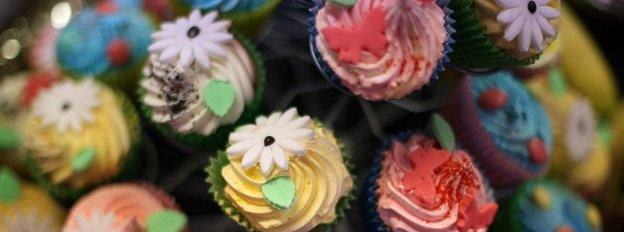
There has been growing concern about the damaging impact of sugar on health - from the state of people's teeth to type-2 diabetes and obesity
Sugar has been blamed for providing "empty calories" because it has no nutritional benefit
Government advisers recommend no more than 5% of daily calories should come from sugar
That is about 1oz (25g; six or seven teaspoons) for an adult of normal weight every day. For children, it is slightly less
The limits apply to all sugars added to food, as well as sugar naturally present in syrups and honey
To put this in context, a typical can of fizzy drink contains about nine teaspoons of sugar

- Published7 January 2016
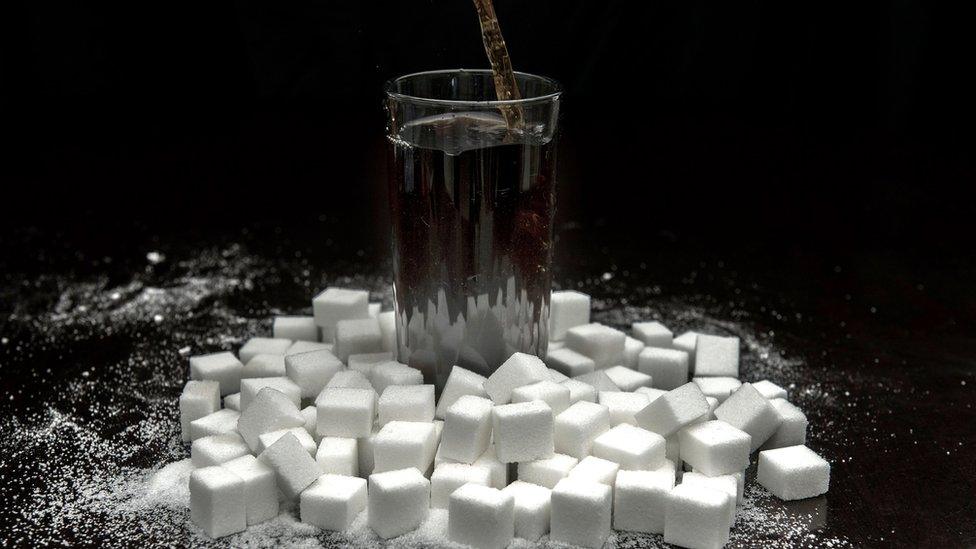
- Published30 November 2015
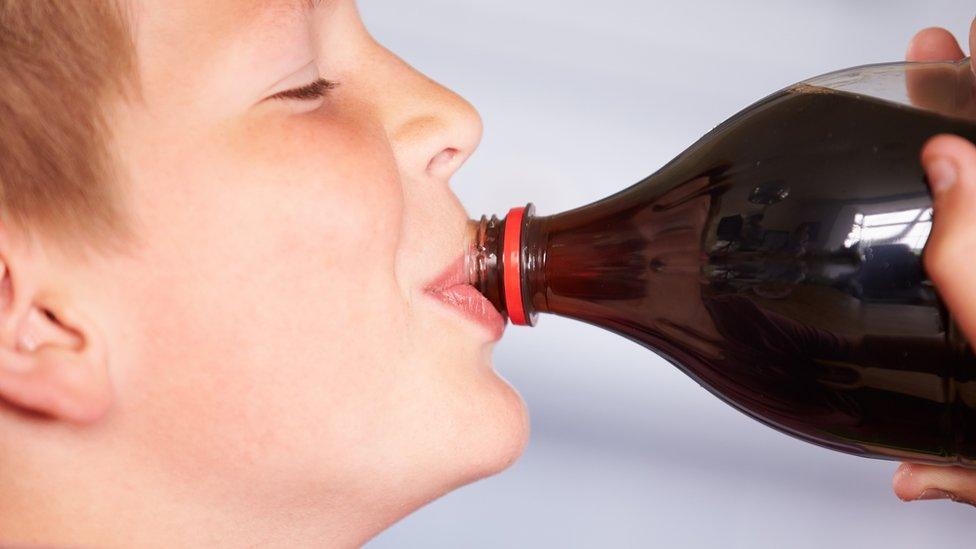
- Published30 November 2015
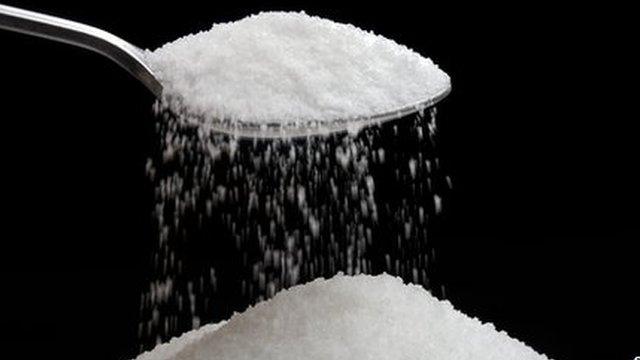
- Published22 October 2015
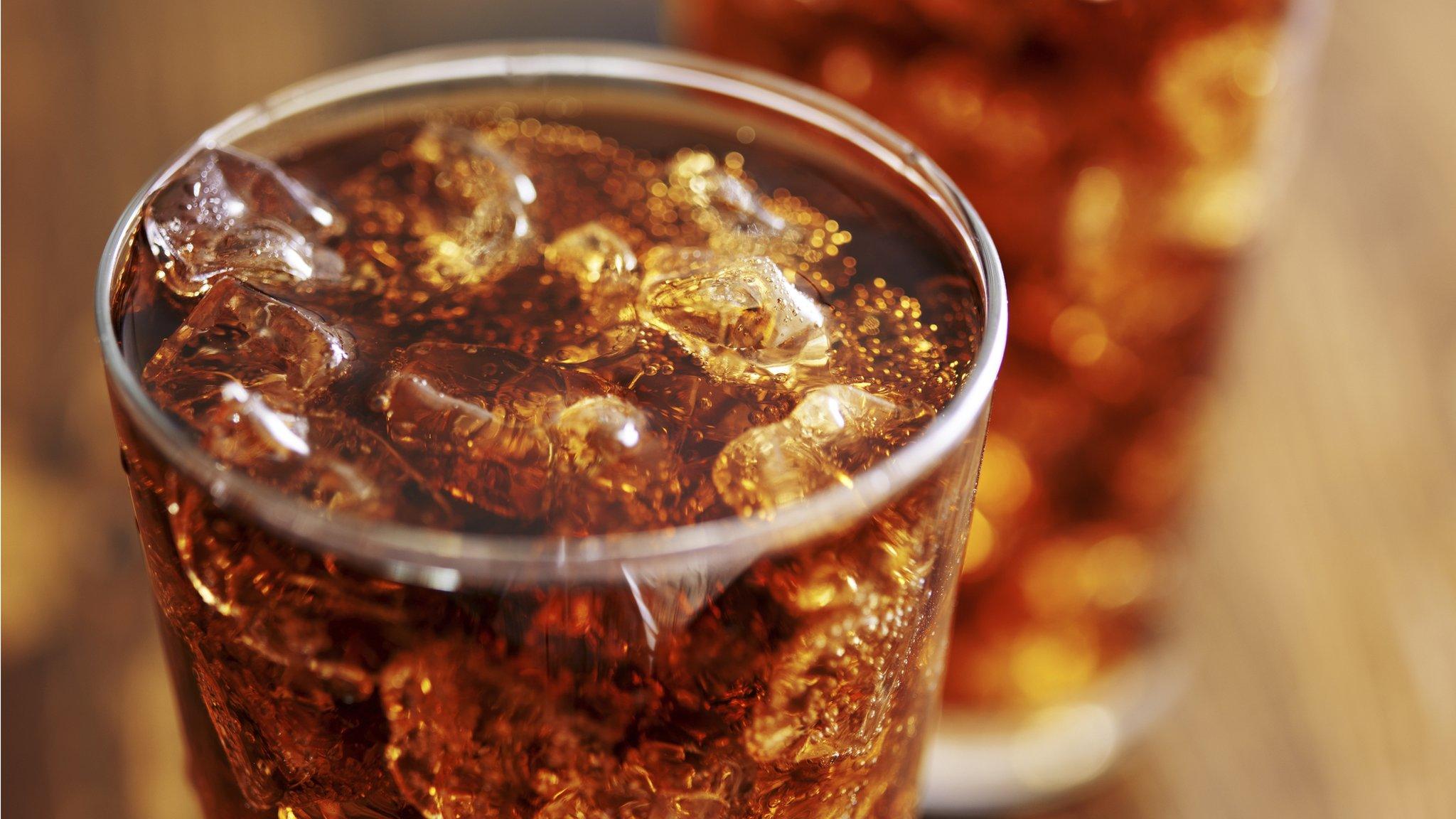
- Published21 October 2015
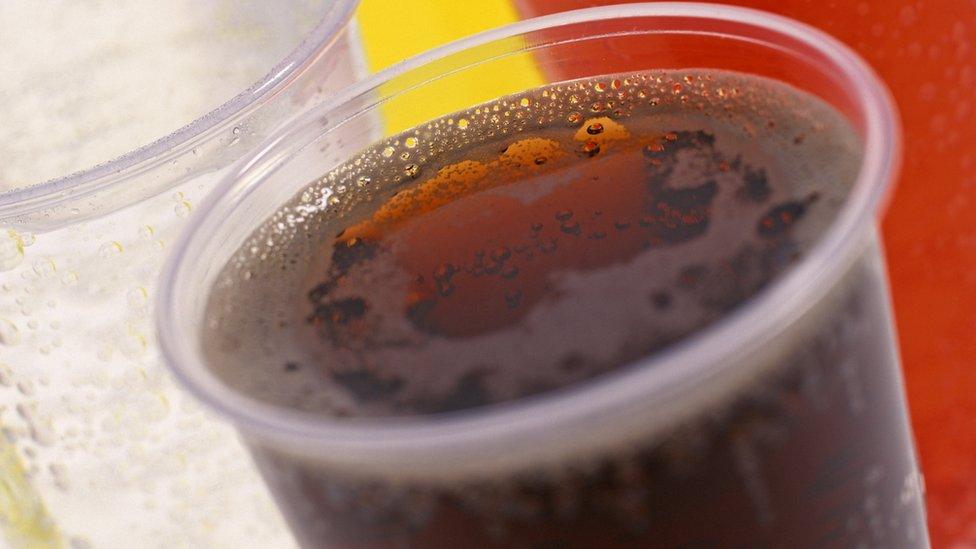
- Published19 October 2015
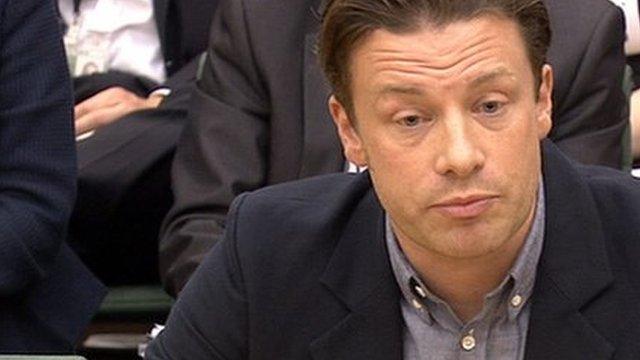
- Published17 July 2015
